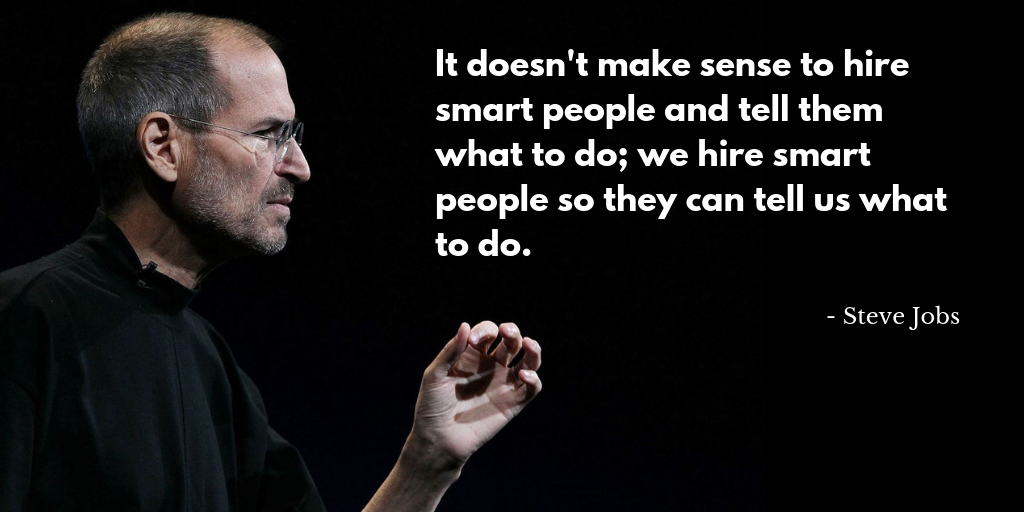So you wana hire a writer to right the million dollar story in your head?
When a writer writes their own work, they don’t answer to anyone.
Heck, some writers don’t even use an editor (not advised). They fill all the creative roles in the process and make all creative decisions alone.
When a freelance writer takes on the duty of writing for someone else, by its very nature, some level of collaboration takes place. The question becomes; what level of collaboration are you (as the person hiring the writer) looking for?
If you’re creator, publisher, producer or the like, looking to hire a writer to develop your IP, it’s important to understand the difference between a cowriting and a hiring a writer to write for you.
Let’s break it down;
Cowriting
Cowriting is the highest level of collaboration. It literally means two (or more) collaborators are working together to create a body of work inseparable from each collaborators contribution.
In a cowriting environment, each contributor offers their voice for the “greater good”, to produce a grander, unified voice. Of course no writer wants their voice drowned out, but in a cowriting environment, each participant understands the final product is a sum total, not a showcase of the individuals.
Generally speaking, cowriting offers the opportunity for all contributors to mold, change, and revise each other’s work, at anytime.
As cowriting, in theory, divides all creative decisions evenly among contributors, in essence creating a creative partnership, most writers will not undergo cowriting without a similar association in actual ownership of the project.
In other words, if we’re going to develop and create the IP together, we’re going to own it together.
Nick Says: “I pretty much never do cowriting projects.” I’ve written a whole article on the pitfalls and problems with cowriting. I highly recommend everyone read that article.
At the other end of the spectrum you have a;
Hiring a Writer to Write for You
(or for simplicity’s sake, we’ll call it, “a standard writing contract.” A bit of a misnomer, but let’s run with it.)
In a standard writing contract, the client gives the writer a creative brief, or specific creative direction, then the writer goes and writes.
The writer is solely responsible for all creative decisions not defined by the client, and wholly responsible for the execution of all creative decisions, presenting a final showcase of only their voice. The writer delivers the final goods and the client gets what they get–any revisions or edits are handled under a new contract, or perhaps, handled by a separate writer.
Think of it like buying land to build a house from scratch.
You approve the blueprints then the builders go and build the house. The client doesn’t go in halfway and say, you know what, I changed my mind, let’s put the kitchen where the garage is, and all the plumbing in the attic. (If they did, you’d have to start over with new blueprints and a new contract.)
When you hire professionals, you will get the best results when you do the following;
- Know what you want (or have the flexibility to accept what you get).
- Avoid micro managing.
While in a standard writing contract, the writer has filled their obligation upon delivery of the work, the reality is, most good professionals writers will be willing to make some accommodations and edits, to keep a client happy.
But even in these cases, remember, hiring a writer to write for you, is not the same as a cowriting relationship. As a professional, the writer is working to deliver their best work in their voice, not the client’s voice.
When hiring freelance writers in the real world, you’ll probably find folks who fall somewhere in the middle of the spectrum.
In the real world every writing contract is different, the deliverables are different, and approaches may vary.
But no matter how a freelance writer offers to provide their services, now you know the ends of the ‘writer for hire spectrum‘ and that will help you decide where you want yourself to be and what you expect of your writer.
By the way, be careful with any writers who don’t specify how much collaboration, or at least what level of collaboration they are expecting. This is a sure fire way to run into major headaches on a project.
And take this sage piece of advice; the best thing you can do is hire people who are great at what the do, get out of their way, and let them do their best work.
Ok, you don’t believe me, so here it is in a visual from someone famouser and smarterer than me;

If you don’t know a writer is great at what they do, STOP and reassess.
If you don’t know how to tell good writing from bad, YOU should not be in charge of hiring the writer. If there’s no one else, consider hiring a consultant to help you. Yes, a consultant will cost you more, but it’ll cost you less than having to hire five different writers because you keep hiring the wrong cats.
And don’t think you can skate by, by hiring someone who’s not great at what they do. Ok, if you’re a stellar writer and have time to hand-hold, that could work. But if you’re not a stellar writer, that just becomes the blind leading the blind.
I’m gonna leave you with some real world tips and examples of how to “collaborate” with a writer outside of a cowriting relationship.
Take these to heart and your work with an outside writer will go smooth and produce the best results.
* First, make sure you like the writer’s portfolio of work and are confident they will do a good job.
If you don’t have confidence in their creative decisions, you’re never going to be happy with the final product.
* Second, put 90% of your effort, into everything at the beginning–before the writer starts writing.
Focus on the bigger movements, and larger expressions. The broader strokes, the fundamentals, really define the story–they set the parameters for the writer to work within. You can include any specific details you absolutely know you want in the work, but if you’re not 100% sure, then focus on the underlying mechanics that lead you to those details and let your writer make the final call.
I’m often asked, “how do I know I’ve developed enough of my story to pass to the writer, so he can begin writing?” The answer is simple, the less you pass to him, the more freedom you should give them.
If you pass them “Give me a space adventure, with aliens…” Then you should pretty much be totally on board with whatever they deliver. If you tell them “Give me a space adventure, with aliens…” then ask how come there’s no MIB style organization, how come there’s no super hot love interest, how come there aren’t any hypersonic nuclear bombs… that’s on you.
If you’re going to get upset if the writer didn’t read your mind and capture your secret subconscious vision, you better deliver more, before they start.
* Third, make peace with the fact that you are hiring someone else, to tell your story.
YOU ARE NOT TELLING THE STORY. I mean that literally. You are asking someone else to use their voice to express your vision. It is impossible for another party to express your vision, exactly as you would express it. This expectation is the fast-track to disaster.
This is another way of saying, the minute you hire someone else, the vision of the project is no longer yours alone. Period. (This is essential in comics.)
If you truly want your voice to express your vision, write it yourself.
That’s not me being a jerk, it’s me saying, it’s the only way to actually achieve that goal.
Heck, I had one client hire me to write a script, and he told me straight up, before the project even started, “Nick, I want you to write the first draft, then I’m going to go in and tear it to piece and rebuild it as I’ve envisioned it all these years.” I don’t normally do that, but in this case, since he told me right off, I decided it wasn’t a problem and did the job.
* Fourth, don’t do the writing.
Deliver your direction with a broader view of the story. Don’t tell the writer how to execute, that’s the writer’s job… instead, tell the writer what you want executed.
When it comes to edits, instead of trying to dictate the execution of specific details, discuss why an element is or isn’t working for you, deliver the logic behind the change, and let the writer creatively execute the solution.
* Fifth, if you find yourself with excessive, I mean A LOT, of edits, one of two scenarios is taking place; either your writer delivered crud, or you’re micro managing.
Review tip #3, and make sure you’re not the problem. If the writer passed tip #1 with flying colors, you might be micro managing. If for some reason you skip tip #1, your writer probably delivered crud.
If the writer slipped up that bad, but think they can still deliver; instead of trying to fix each and every mistake, try and find the patterns and themes in the writer’s shortcomings.
For example; Maybe you come back and say, “The dialogue is too on the nose.” Or, “The characters are too one-dimensional.” Or, “The pacing of each scene is too slow.”
If you identify the fundamental problems, instead of trying to address each specific instance of it, then toss it back to the writer to address, you’re far more likely to get a usable revised draft. Or at least a revised draft that requires far less individual attention.
Hiring someone to capture your vision, in any medium, is never easy. But if you pay attention to the tips and examples in this article, you’ll have a much better chance of a smooth, fruitful relationship with your writer. ▪
About the Author —
Nick Macari is a full-time freelance story consultant, developmental editor and writer, working primarily in the independent gaming and comic markets. His first published comic appeared on shelves via Diamond in the late 90’s. Today you can find his comic work on comixology, amazon and in select stores around the U.S. Visit NickMacari.com for social media contacts and news on his latest releases.
